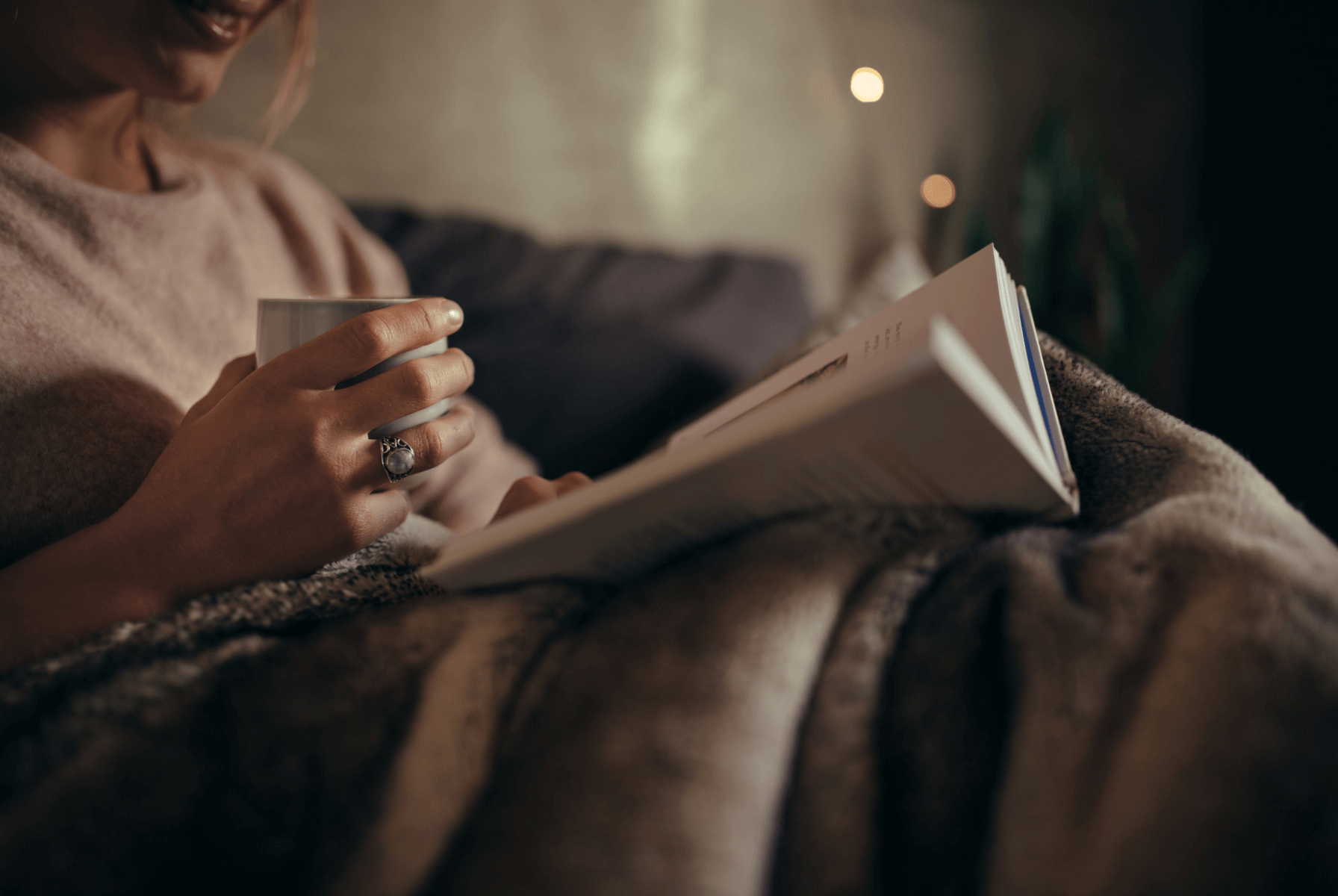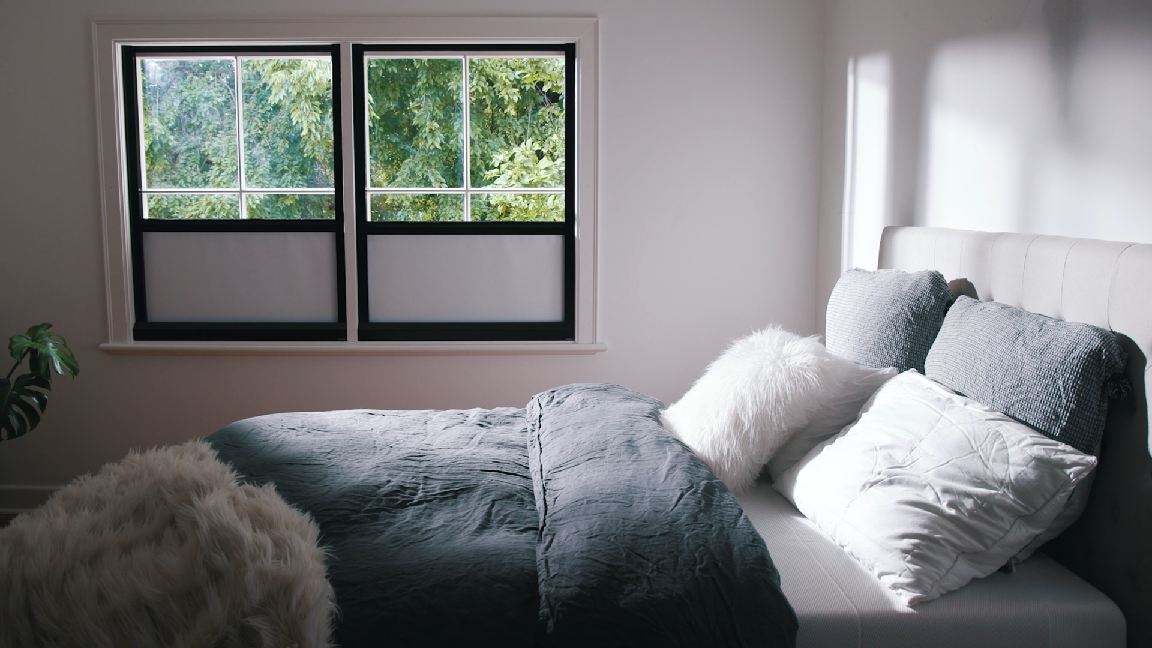In our fast-paced, light-saturated, and stress-filled world, securing a good night's sleep has become somewhat of a luxury. More than 1 in 3 Americans are not getting enough sleep, often getting less than the recommended minimum of seven hours each night.Good quality sleep is the foundation of productivity, wellness, and physical health. By making the deliberate choice to value and prioritize your sleep, and embracing good sleep hygiene, you will not only transform your nights but your days too.Our bodies aren’t designed to shift from full speed and then suddenly drop into sleep. They need time to unwind. That's what good sleep hygiene is all about - creating a routine that gently prepares your body and mind for sleep, naturally.
What is sleep hygiene?
Sleep hygiene is the science-backed habits and routines you have during the day and before bed that foster a consistent pattern of deep, restorative sleep. Environmental factors in your sleep space can also play a part in your sleep hygiene.
If you’re one of the many Americans today who struggle to get a good night’s rest, sleep hygiene can help you regulate your sleep cycles, improve the quality and duration of your sleep, and enhance your overall health.
The science of sleep
Sleep is a critical period for physical repair, cognitive restoration, and emotional processing. During sleep, your body undergoes various processes, including muscle repair, memory consolidation, and the release of hormones to regulate growth and appetite. Essentially, without proper sleep, your body doesn’t get the chance to fully recharge and recover.
The impact of neglecting sleep hygiene
Poor sleep hygiene can lead to a range of negative consequences:
- Increased sleepiness and difficulty staying awake and focusing at work, school or during daily activities
- Mood changes, irritability, and increased stress, which, over time, may also contribute to symptoms of anxiety and depression
- Cognitive impairments, such as problems with memory, concentration, decision-making and reaction times
Did you know that driving after staying awake for prolonged periods, such as 17 hours or more, can impair your driving ability to a level comparable to having a blood alcohol concentration of 0.05%? This level of impairment increases the risk of microsleeps and slower reaction times, contributing to about 20% of vehicular accidents.
- Lowered immune system, increasing your risk of infections and illness
- Poor sleep can affect hormones that regulate insulin and hunger levels
- Increased risk of chronic conditions, such as heart disease, diabetes, and hypertension
- Disruptions in hormones affecting growth, stress, and the reproductive system
- Lowered libido due to reduced energy, sleepiness, and increased tension, which can have an impact on relationships, connection and wellbeing

What are the benefits of good sleep hygiene?
When you’re getting the deep sleep you deserve, you're sharper, more productive, and truly in the moment from the time you wake up, right through to your bedtime.
Getting quality sleep doesn't just feel good. It's important for your health. Good sleep recharges your body and mind, keeping you refreshed and healthy.
Sleep is vital for your health, both body and mind. Good sleep can help you:
- boost immunity
- manage weight
- lower the risk of chronic diseases such as diabetes and heart disease.
- improve mood and memory
- help your brain form pathways for better information recall and problem-solving
- decrease levels of stress and anxiety for overall mental health and well-being

6 steps to set yourself up for sleep success
Practicing good sleep hygiene doesn’t have to be complicated. Here are some tips to help you get started:
1. Stick to a schedule: Commit to a consistent bedtime and wake-up schedule, even on weekends. This predictable routine resets your internal clock and reinforces your sleep-wake cycle.
If you want to change your sleep times, don’t try to do it all at once! Instead, gradually adjust your routine, making small, step-by-step adjustments of up to an hour or two until you've settled into a rhythm that leaves you feeling refreshed and energized. An afternoon power nap can be a handy boost, but keep it short and sweet to avoid disrupting your sleep schedule. Avoid naps after 3 pm and set an alarm to keep it to 30 minutes or less.
2. Follow a nightly bedtime routine: Preparing your mind and body for sleep can often influence how easily and quickly you’re able to fall asleep. Just like setting a routine bedtime, following a consistent pre-sleep routine can help put you at ease and signal to your brain that it’s time to sleep. Follow the same routine, like putting on your pajamas, brushing your teeth, or taking a warm bath before bed.
Budget at least 30 minutes before your scheduled bedtime for winding down. Incorporate activities that help to calm and soothe your nervous system, such as listening to soft music, reading, practicing meditation, or light stretching. Try to avoid electronics and artificial light, including your smartphone, tablet, tv, or laptop for at least 30 - 60 minutes before bed. These devices beam out the dreaded blue light, severely impacting melatonin production.

3. Limit, or even eliminate, light: External light exposure near bedtime disrupts the circadian rhythm, your internal clock regulating sleep-wake cycles. Avoid exposure to bright lights close to your bedtime, this includes blue light from electronics, so switch them off too. Instead, create a pitch-black environment and try using red light, proven to aid sleep.
For 100% darkness, install total blackout shades in your bedroom. Embrace smart home automation to synchronize with your body's clock. Set timers to open shades in the morning, allowing the sun to naturally wake you up, improving your alertness and mood. Before bed, close your shades to signal to your body that it’s time to sleep.
4. Get regular exercise: Experts believe sleep and exercise share a powerful, bidirectional relationship. Engaging in at least 30 minutes of moderate aerobic exercise is claimed to improve not only your sleep quality that same night, but reduce the time it takes to fall asleep.

5. Watch your intake: For quality sleep, it’s important to be mindful of your evening food and drink choices. Late-night meals are best avoided as they can tax your digestive system and leave you uncomfortable. Post-dinner coffee may seem like a nice way to end a meal, but remember that caffeine is a stimulant and it could keep you awake for longer than you’d like. Alcohol may initially help you to fall asleep, but can lead to restlessness later in the night due to dehydration. Nicotine is also a stimulant, and can create ripe conditions for insomnia and shorten your total sleep duration.
6. Curate the perfect sleep space: Ensure your bedroom is geared up for the best possible sleep. It should be cool, quiet, and as dark as possible.
- Maintain a cool temperature: Keep your bedroom between 65 to 68 degrees Fahrenheit (15.6 to 20 degrees Celsius). Your body’s temperature naturally drops as you sleep, so cooler rooms will help make it easier to fall and stay asleep.
- Minimize noise: Use soundproofing materials or a white noise machine to create a calm, quiet environment.
- Darken the room: Install blackout shades to block out light, helping your body recognize it’s time to sleep.
- Invest in quality bedding: Choose a comfortable mattress and supportive pillows to improve sleep quality.
- Choose calming colors: You might like to opt for soothing, calm colors for your bedroom walls and decor to promote relaxation.
- De-clutter and de-stress: Regularly tidy your space to reduce clutter and create a peaceful atmosphere

Good sleep hygiene is about creating the right conditions for deeper, high-quality sleep. It’s a consistent set of habits and practices that can pave the way for improved health, mood, and overall quality of life.So tonight, why not take the first step towards better sleep hygiene? Your body (and mind) will thank you for it.
